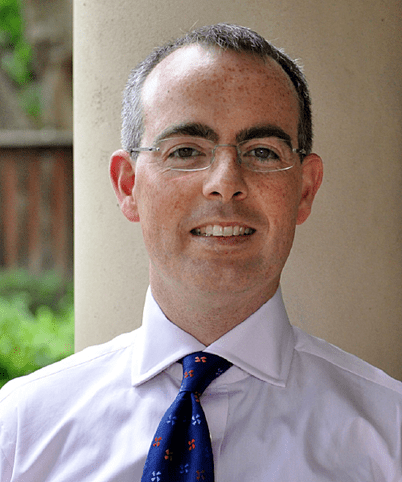
“Here is a trustworthy saying”, declares the Apostle Paul, “whoever aspires to be an overseer desires a noble task” (1 Tim 3:1). The truth is, however, contemporary Australian Christians might find it a little hard to resonate with this sentiment. Perhaps the Apostle would have made more sense if he’d described it as a “brave” or “desperate” task – “heroic”, possibly, but only in the reckless or foolhardy sense.
For starters there is the authority that comes with office. As a likely relic of our convict past, it’s no secret that Aussies tend to be rather cynical on this score. Often this is with good reason. We have finely tuned radars when it comes to detecting self-serving abuses of authority, and tragically the clerical office all too often falls foul of this scrutiny. Nothing is uglier than tales of laziness, heavy-handedness, bullying, infidelity, domestic violence, or the sexual exploitation of minors amongst the ranks of pastoral ministry. All this disgraces the name of Christ and severely hampers our witness, calling to mind Paul’s damning assessment that “God’s name is blasphemed among the Gentiles because of you” (Rom 2:24).
But sometimes the Aussie disdain for authority has a less sinister cause. Often it simply stems from the bare fact that we don’t like being told what to do. Of all forms of sermonizing, perhaps none is more insufferable than the wowser who climbs up to his soap-box pulpit week after week. Fortunately, one of the beauties of a volunteer organisation like the church is that its attendees are free to register their protests with their mouths, wallets, or feet – and so we often do.
When you add to this a growing public intolerance of Christianity in the secular West, it is no surprise that many Australian Christians no longer honour pastoral ministry with the respect it once held, but increasingly consider it a rather reckless aspiration for an exceptionally brave few. This is before any mention of job insecurity, workload, a relatively nomadic existence, and so on.
Of course, there is nothing new or uniquely Australian to the “foolhardy” perception of pastoral ministry. Paul surely felt that perception as much as anyone. Even a quick glance through his second letter to the Corinthian church makes that point well enough. For all that, however, he does not cease to call it a “noble task”, indeed, something “worthy of double honour” (1 Tim 5:17).
I take it the reason for this is the significance God accords to pastoral leadership within the being and organisation of his church. It is an appointment of Christ himself (Eph 4:11), we are told, an imprint of his unique authority as “head” over his “body” (Eph 4:7-16), “builder” of his “house” (Heb 3:1-6), “shepherd” over his “flock” (John 10:1-18). That is to say, in the eyes of the New Testament, pastoral leadership is not a pragmatic affair – a case of freeing up some time for one volunteer to do a bunch of jobs that the rest of the volunteers have neither time nor inclination to do. It is no less than a Christ-ordained “means of grace”. It is the chosen means by which the chief shepherd has determined to tend and watch over his flock (cf. John 21:15-17; Acts 20:28; 1 Pet 5:1-4). Hence it is an indispensable office which the church actually requires for its spiritual health, and to which it must gladly submit (Heb 13:17).
None of this is to deny the critical importance of “every-member” ministry. It is not to say that teaching the Scriptures, proclaiming the Gospel, encouragement, acts of service and hospitality are to be the exclusive preserve of a professional class. Nor is it to denigrate the importance of specialist ministries to children or youth – indeed, in our Diocese we rightly ordain to the Diaconate those who are called to “give instruction to young people in the Christian faith”.1 Paul readily attests to the importance of each gifted member of Christ’s body serving for the common good (1 Cor 12:7).
But it is to say that there is to say that there is a unique Christ-given power and authority to the office of the one who is formally recognised by the church as a “pastor-teacher” – that is, the one who is publicly acknowledged with the unique responsibility for proclaiming the word of God and caring for the flock, whether in the local assembly of God’s people, the school, the university, the seminary, etc. It is no exaggeration to say that the spiritual health of the church depends on this office in a way that it does not on any other.
Not surprisingly, the New Testament sets a high bar for this office. A pastor must be spiritually gifted for the task, something which is recognised as a demonstrated or “qualified” ability to teach and defend what accords with sound doctrine (cf., 1 Tim 3:3; 2 Tim 2:2, 24; 3:2-5; Tit 2:1). This is not an arid academic ability but one which is acutely sensitive to the connection between biblical truth and the state of the lost, as well as the diverse needs of the flock (e.g., 2 Tim 4:2; Tit 2:2-10). Equally important as a proven ability to teach is the call to live nothing short of an exemplary life 1 A service for “The Making of Deacons”, in An Australian Prayer Book (Sydney: AIO, 1978), 606. (1 Tim 3:1-7; Tit 1:6-9; 2:7-8).
Consequently, we must be active in urging those who are faithful and gifted to step forward for the task. We must ensure they are properly qualified. In our Diocese there are formal mechanisms in place to confirm that our pastor-teachers have a tested ability to teach. There is a process of examination into which representatives of the whole church have input. We also subject them to the discipline of theological education. Indeed, the programme of theological education these candidates receive is important enough that it is rightly accountable to the whole church through the Synod, distinguishing Youthworks and Moore College from other training institutions, and highlighting their unique and vital significance to the life of the Diocese. Once appointed, we need to hold them to account for their life and doctrine. We need to pray for them and support them financially. And we need to submit to them so as to make their work a joy rather than a burden.
Since peaking in 2010, the number of those being presented in our Diocese for ordination to this office has steadily declined. Various reasons are cited anecdotally for both the peak and the decline – a proliferation of ungifted candidates, a run of inappropriate appointments, a failure in identifying and training the future generation, a reluctance to step up, and so on. Not so long ago there was talk of too many candidates and not enough jobs; now there is talk of too many vacancies and not enough people to fill them. Cynicism abounds, it seems. Perhaps it is the case that some of our pastoral leaders have disappointed us through inadequate gifting, or even worse, infidelity.
Perhaps it is that we have dropped the ball in identifying and raising up the next generation of pastors. Perhaps it is that gifted people are increasingly reluctant to step up in the face of rising hostility towards pastoral leadership, either from within the church or from without. Perhaps it is that resources are being redirected to personal interests or well-meaning causes elsewhere (e.g., property, youth and children, missional strategies, etc.).
Whatever the reason, any neglect of this office is to our collective shame and spiritual detriment. The vitality and future of this office is, of course, the daily responsibility of organisations like MTS, Moore College, Youthworks, as well as existing office-holders (Bishops, clergy, ministry staff). But it is not just their responsibility – the whole church needs to be invested in it constantly. Undoubtedly Christ will forever preserve his church. But he ordinarily does so by his appointed means that he commands us to embrace in faith. And therefore, we cannot afford to be negligent or cynical when it comes to the precious pastoral task, or else we risk capitulating to our own spiritual malaise.
Originally published in ACR Winter 2019 (republished with permission from Andrew Leslie)
